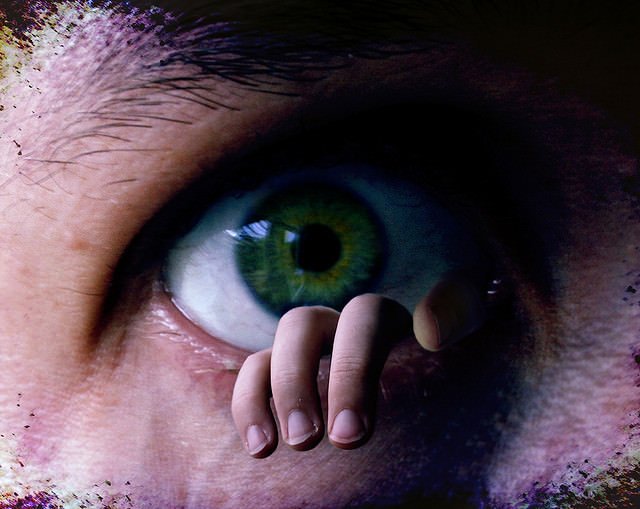 Welcome!
Welcome!
If you’re searching for a psychotherapist please contact one of the members of the New York Psychotherapy Network.
We are a select group of highly experienced, state-licensed clinicians in private practice throughout New York City.
What can we do for you?
● We can help with improving a troubled relationship.
● We can help you through a traumatic time in your life.
● We can help you come out as a gay, lesbian or transgendered individual.
● We can help when problems like extreme shyness, or anger are interrupting your life.
● We can help with depression, anxiety, break-ups and other emotionally difficult issues.
So if you need some help, call now.
We have a diverse and extremely well trained panel. Our panel is hand picked – Truly, only New York’s best therapists are admitted as members (see ‘Our Members’ for more info). We have Gay and Lesbian Psychotherapists on staff. We have Psychoanalysts and Behavioral people. We have Psychotherapists experienced in the arts. Some of our specialties include: depression, anxiety, feelings of futility, couple and relationship issues, gender, phobias, shyness, coming out, divorce, problems with anger, substance abuse, alcoholism, psychotherapy and spirituality, sexual problems etc.
Why Psychotherapy?
Read articles below on our approach to therapy:
Bringing Mindfulness Into Therapy: The Three-Pronged Approach
Mindfulness has been heralded as one of the most powerful tools available to us in the struggle to achieve internal balance; described as being a state of “active, open attention to the present”, mindfulness is the process of observing one’s own thoughts and feelings from a distance, without judging them as good or bad. This objective system of emotional assessment can be useful for patients and therapists alike, in all of the following ways:
Mindfulness can create an emotional refuge for the therapist
When one is by nature (and by profession) a helper of others, a problem solver, it is quite easy to forget one’s self. People—therapists included—can lose sight of the fact that therapists are human, too, with complex needs and emotions of their own. They are also people who undertake, on a daily basis, difficult and emotionally draining work.
Mindfulness is therefore of particular use to therapists, as it requires them to continually bring attention to their experience in the present moment. Regret, ruminations, worries, and future projections, all fall by the wayside as one focuses on the sounds and sensations around them: the intake of breath, the feeling of sitting in a chair, and so on—becoming entirely immersed in the world of the present.
This brings with it manifold benefits; as our attention aligns fully with the present, we become much more active listeners, and much less preoccupied with nagging anxieties, allowing us to project a calmer, more reassuring demeanor. Plus, research demonstrates that for therapists, practicing mindfulness results in lower perceived job stress and a lower risk of burnout. Therapists, like all people who engage in mindfulness, experience an increase in self-acceptance, self-compassion, and an improved sense of well-being.
Continue reading →The Emphasis on Diagnosis in Mental Health
Prior to the turn of the 20th century mental health disorders weren’t viewed as something that belongs to the medical domain. Then came the work of Sigmund Freud, Carl Jung, and other notable psychiatrists. This triggered what some call the modern era of mental health. As a result of this paradigm shift, mental health conditions came to be viewed as a part of the spectrum of medical conditions.
With this view of mental health conditions came the application of the standardized medical model which includes:
- Observation: The collecting of pertinent information regarding the bio/psycho/social aspects of the patient.
- Assessment: A review of observations, including interviews and testing results in a collection of data.
- Diagnosis: Based upon the data collected a systematic process the most appropriate diagnosis is made.
- Treatment: Usually driven by diagnosis, treatment for the condition is introduced.
As treatment begins, typically one of the most common questions asked by a client is, “What do I have Doc?” For many the answer comes quickly and often easily. Others can present as a moving target, making it difficult to establish a diagnosis.
On a more cautionary note, it must also be acknowledged that there are mental health professionals who prefer not to communicate the diagnosis to clients. For some it is viewed as labeling the client and depersonalizing them to being a symptom rather than a person. They feel that applying standardized medical model of doctor-patient relationship to mental health conditions is detrimental for therapeutic effects. That is why mental health patients most often called “clients”. Whether you agree or not the diagnostics remain a critical part of treatment, whether it’s communicated to clients or not.
Continue reading →Understanding The Benefits of Psychotherapy
Psychotherapy has often not gotten the respect it deserves, but this method of healing mental health disorders proved to be very effective owing to the way it takes in the full scope of the human experience and encourages the authentic change in the way client relates to the world and people around him.
Psychotherapists work not only on their patients’symptoms, but on their characters, understanding that character coalesces from both our genetic temperaments and the experiences of our formative years. Psychotherapists understand that when those formative experiences are negative (involving things like abuse and deprivation), our internal environments and our predictions for the future become similarly negative and flawed, leading to the development of mental illness.
Psychotherapy effectively analyzes the mental “play”that the patient has (involving people as “characters”, imagined scenarios, plots, etc.) finding where it is problematic and why, and encouraging the patient to mourn the original pain that caused these problems. Once this pain has been mourned, the patient can dismantle the problematic play and write a new, more positive one in its place—something which medication alone cannot ever accomplish for the patient.
Too many mental health professionals treat mental illness as simply a medical problem, not taking into account that it is, like all human suffering, also a human problem. This is an inherently narrow and incomplete way of looking at psychiatric symptoms; no human suffering can be properly understood without also examining the human condition and the human experience, including everything from relationship struggles, to parental abuse, to questioning the meaning of life, to toxic coping mechanisms, and much more.
Continue reading →Psychotherapy: An Overview
If one really thinks about it, the 21st century is riddled with all kinds of psychological problems. You hear of depression, suicides, cutting, substance abuse, and the like, running rampant in the world. Every individual has faced some kind of complication more than once in his life, be it troubles at home, in the workplace, or within any other site of social interaction. Sometimes such issues are intensified so much that one cannot help but feel as though the light at the end of the tunnel is but a mere fallacy. You feel lonely, betrayed, and above all, develop a cynical perspective of life. There seems to be no hope left.
The belief that you are the only one with insurmountable burdens is not true. You aren’t alone!
Various statistics can give a broader understanding of the prevalence of such troubled individuals. The National Institute of Mental Health, for example, has stated that more than a quarter of the adults living in America suffer from mental disorders such as depression or anxiety, just to name a few. Other than these, a variety of common, everyday life issues, like unemployment, peer pressure, death of a loved one, relationship break ups, and perhaps something as superficial as appearance and weight may acquire a level that could be crippling to the very person’s well-being. This wide array of difficulties may have varying time scales. Some could be short term hindrances whereas others could be occurring for a long time.
Continue reading →Why Psychotherapy?
Millions of Americans have benefited from consulting a psychologist and going through therapy. It has helped them overcome depression, anxiety, and other mental health conditions. However, in spite of the positive results provided by psychotherapy, many people still find it uncomfortable to consult a therapist or in some cases, to continue and sustain the therapy.
The most important question revolves around the fact as to why one should consider consulting a therapist. To understand this, one must first understand what the therapy is all about. Therapy is a partnership and a professional relationship between an individual and the therapist, who aims at dissolving the client’s distress. The therapist is usually a trained individual who is licensed to help people. He is trained to understand the client’s feelings and help them in altering their behavior in a positive direction. Facts provided by the Substance Abuse and Mental Health Administration show that about one-thirds of the adults in the United States suffer from substance abuse related problems from a very early age, and, consequently, face emotional distress. Almost 25 percent of the population suffers from anxiety and depression at one point or another.
Continue reading →How Effective is Psychotherapy?
According to the American Psychological Association, ‘Psychotherapy’ includes any of a group of therapies used to treat psychological disorders, focusing on changing faulty behaviors, perceptions, thoughts, and emotions that may be associated with specific disorders. People sometimes question the necessity of consulting a psychotherapist at a point when they can easily talk to their friends or family members about it. This query can be simply satiated by the fact that the therapists are trained professionals who handle situations in novel ways unknown to common people. Rather, untrained individuals can unknowingly cause more damage when trying to provide help.
“Psychotherapy Research” journal quotes a number of studies that have been successful in proving the effectiveness of the therapies. They have indicated that a successful therapy brings about positive changes in people’s lives. This, in turn, facilitates the patient to overcome his distress. The studies indicate that 75% of the patients undergoing psychotherapy show a positive signs of improvement. Some researchers also refer to the fact that an average person who undergoes treatment is in a better state of mind than 80% of those who do not undergo psychotherapy at all. Yet, it is very difficult to evaluate effectiveness of psychotherapy due to variety of mental disorders and individual conditions of patients.
Continue reading →How to Find a Psychotherapist that You Can Trust?
Assuming you have decided to try out psychotherapy, you now need someone who can help you cope with your predicament and how to eventually get out of it. This certain ‘someone’ is called a psychologist. He or she is a trained individual in the field of not just psychotherapy but also other kinds of treatments related to psychological disorders.
Can you trust a psychologist? Yes. Psychologists and psychotherapists undergo intensive training after completing undergraduate and graduate studies. It is imperative for many to earn a doctoral degree. Overall it takes up to 10 years of studies to become a psychologist or psychotherapist.
Thereafter, they are expected to gain some professional experience for which they could either enroll as an intern at a hospital or in any other supervised health setting. These are the basic requirements that need to be met if they plan to really practice psychotherapy independently. Sometimes, one could also work after obtaining their doctorate. Such a rigorous and dedicated training sets this individual apart from the other types of “well-being experts”.
Continue reading →Can Psychotherapy Be Beneficial For You?
There are several things in our daily life that we cannot deal with. Though we try and manage everything that is happening around us, there are, however, times when we cannot control what happens around us. This is where we are disturbed, perturbed, and anxious. We do not know who can help us. We are out of choices and we know we will need help from an expert. A psychologist is a person who can help you in such a case.
A psychologist is like a counselor. He or she is someone who would listen to you, analyze your problems, and help you find solutions to many of the problems that feel unsolvable. People come to psychologists for a range of problems. Here are some of them:
Continue reading →Why Psychotherapy is Not a Quick Fix
We live at a fast pace. We want it fast and done with immediate results. We want easy solutions that come in the form of a pill. And when it hurts, we just want it to stop or feel numb until it disappears. But it doesn’t work like that in psychotherapy. Why can’t psychotherapy be a band-aid like everything else out there?
Last month I took professional training on psycho-educational testing from Dr. Tali Shenfield, so I asked her thoughts on this. I really liked her answer: Sometimes, you can “stop the pain” and fix apparent problems in just a couple of sessions but it wouldn’t last. Because you just can’t sweep the dirt under the rug and not expect it to blow up in your face one day.
The diagram “Being Defensive” at the bottom of this post is the best visual representation of psycho-therapeutic view of the person, looking at this diagram you can immediately understand why the path to “real you” takes so much time.
Continue reading →








 Welcome!
Welcome!


























